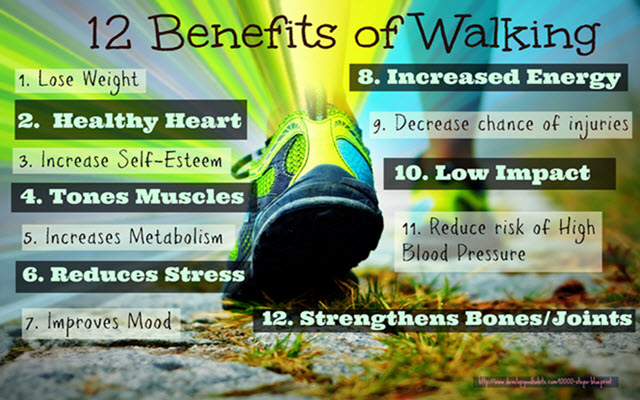



According to a 2012 Harvard University Women's Health Study walking for one to three hours a week reduces the risk of death from breast and uterine cancer by almost 19%. And if these women push themselves a bit further, and walk for about three to five hours a week, they could reduce the risk of breast and uterine cancer to almost 54%.
A study published in the journal Cancer Epidemiology, Biomarkers & Prevention, and conducted by the American Cancer Society found that walking up to 7 hours a week reduces the risk of breast cancer itself by 14%. The sample size of this group was a large 73,600 and was done over two decades, making the results of this study even more credible.
According to a study done at Appalachian State University in North Carolina, a moderately-paced walk for about 30 to 45 minutes daily can increase the number of immune system cells in your body and over a period of time, it can have really remarkable effect on your body's ability to fight disease. To be more specific, walking at least 20 minutes a day could reduce the risk of getting sicker by almost 43%.
A 2014 study published in the Journal of the American Medical Association showed how walking from an early age can help you stay mobile and independent during Old Age
The sample size included people between the ages of 70 and 89. After 2.5 years, researchers found that the group of adults which exercised regularly were 28% less likely to become disabled and also 18% less likely to have any episode of physical disability.
No comments:
Post a Comment